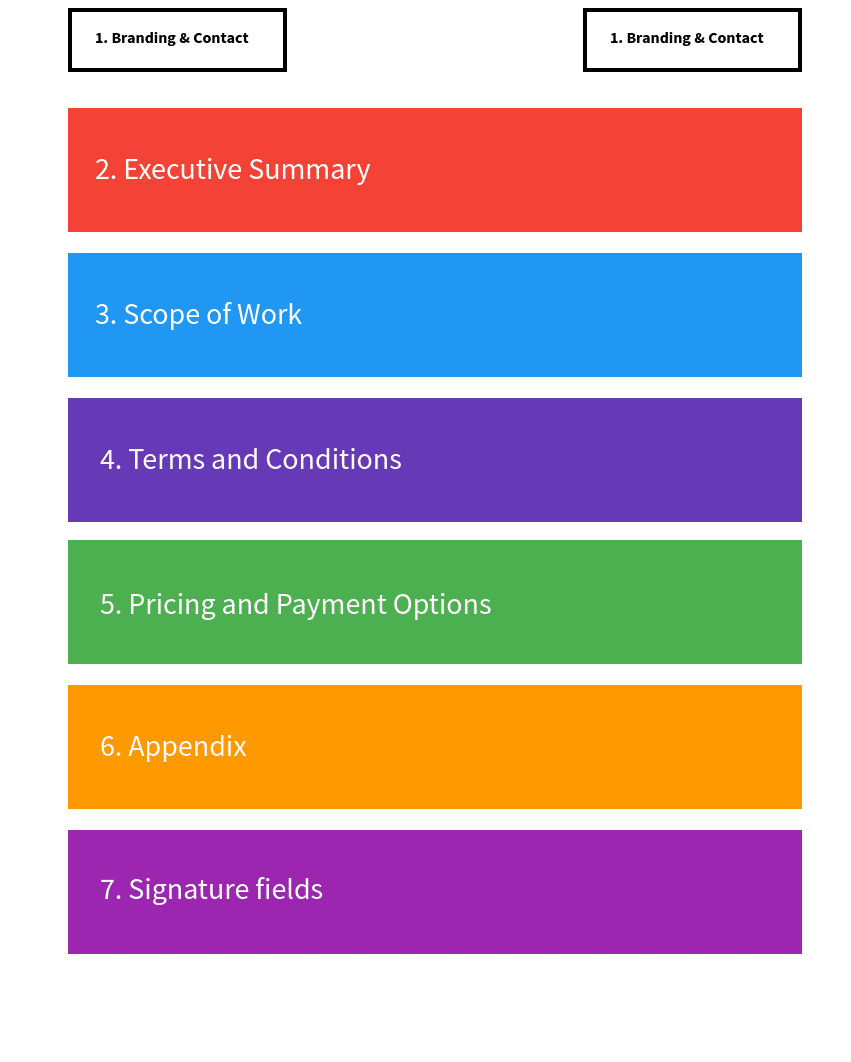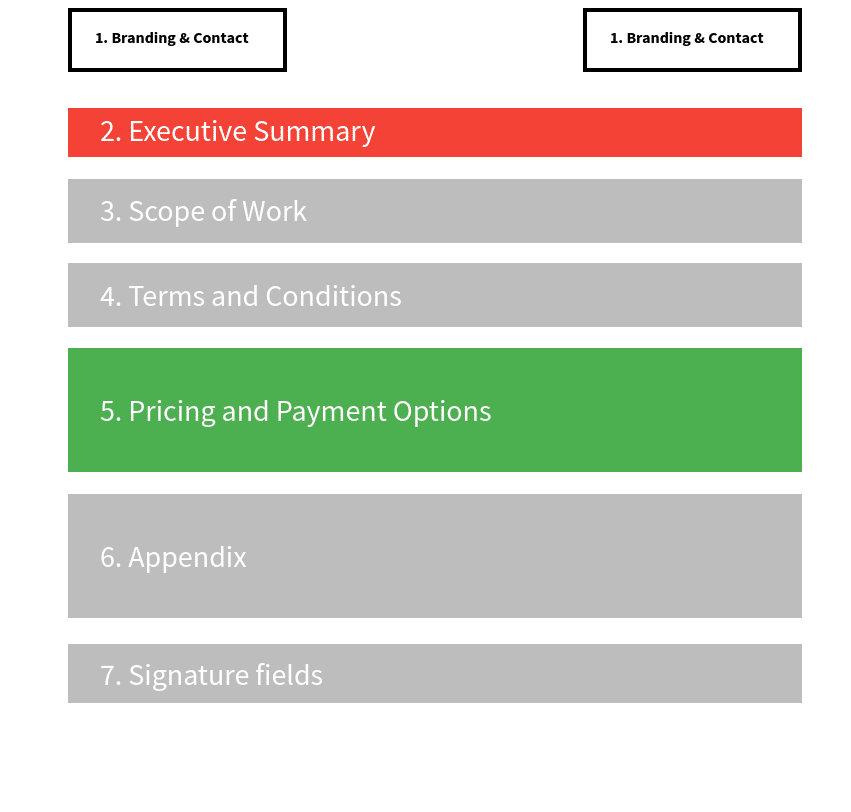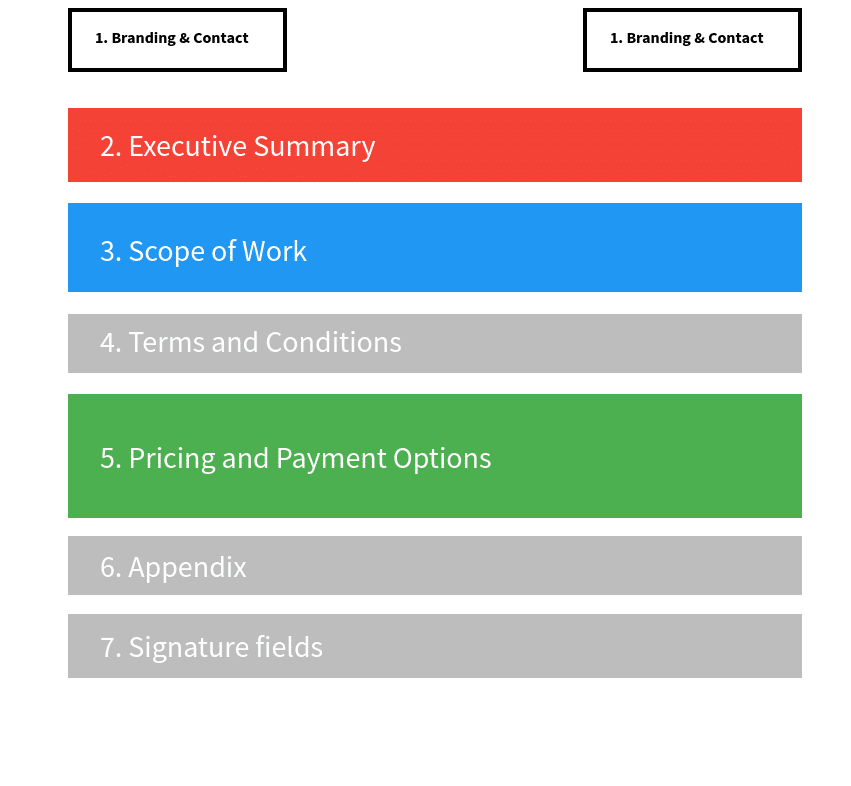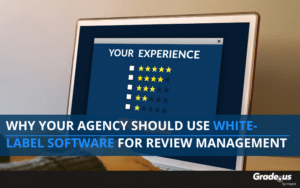It's time to seal the deal.
You've sent your prospect a proposal. Your proposal will most likely be the basis for your online review management contract. If you've done your job well, your prospect is qualified and ready to buy.
This is the part agencies get wrong.
They create long, comprehensive contracts spanning fifty to one hundred pages - which is a fantastic way to kill your deal.
Contracts come with a list of unspoken rules
Bad contracts kill deals.
Bad contracts don't follow the rules. These rules determine whether your contract will (a.) be read by decision makers, (b.) accepted by managers and influencers and (c.) signed and submitted.
Typically, these rules are implicit and vague.
To make things even more complicated, you'll need to know when to follow these rules, when to break them and who to break them with. These rules aren't clear, they're occasionally unfair and difficult to change. These rules dictate the reception your contracts receive.
Get it right, things go well. Make a misstep and you're automatically to blame.
1. Your contract should be one to five pages max.
2. Prospects probably won't read your contract.
3. They'll skip to the parts they want to see.
4. If they don't read it, your contract will catch them off guard.
5. Later, when they're caught off guard, they'll blame you.
Semantics matter here.
When I use the term "contract" I'm largely describing the details that outline promises and expectations. What your soon-to-be-client will receive (from you) and what they will give (to you). This isn't an agreement and I'm not offering legal advice.
Want legal advice? Get an attorney.
Okay then.
What are the key components of a winning online review management contract?
Winning contracts rely on a framework
Your contract framework depends on several distinct, but very important categories.
1. Branding, location and contact details
Your contracts should display agency branding, along with content that's very carefully proofread. Your branding and presentation details should be consistent and clear.
2. The executive summary
A factual overview that briefly covers your client's problems, consequences of that problem and your agency's solution to their problem(s). Remember, this isn't a sales document. You've taken customers through your sales funnel already.
Treat your executive summary like the factual snapshot it is.
3. Scope of work
You'll need to define the campaign parameters clearly. What's your agency's role? What's your client's role? Break these details down clearly and concisely. Avoid jargon and imprecise language. This section should define:
- What is included and in scope.
- What is not included and outside the scope of this campaign
- Activities, milestones, tasks and events
- Time management (e.g. time per activity, time tracking, etc.)
- Initial benchmarks, metrics and key performance indicators
- ROI and conversion measurement – results you’ll achieve, how you’ll achieve them and what you’ll measure
- A concrete list of criteria you’ll use to measure ROI
- Concrete expectations – what you expect from your clients, what they expect from you
- Client deliverables
4. Terms and conditions
These are the dos and don'ts, the legal terms and conditions agencies typically include as part of their agreements. You'll want to reach out to an attorney to ensure the clauses in your agreement protect your agency and your prospective client.
You'll want to avoid a one-sided agreement.
Your agreements should be a win/win arrangement for both you and your clients. If your agreement has to be one-sided, shoot for an arrangement that's 55/45 in favor of your client.
Here are some common clauses to include.
· Terms governing intellectual property. What are the rules regarding intellectual property? Are you allowed to use your client's intellectual property? For how long? Under what conditions?
· Warranty and limited liability. Are you providing your services on an "as-is" basis?
· Indemnification. How will legitimate and illegitimate claims against your agency be handled? Who will be held responsible in the event that something goes wrong?
· Confidentiality and non-disclosure. What specifically are you and your client required to keep confidential? Does this include the agreement itself or does it extend to all non-public information (e.g. know-how, trade secrets and materials)?
· Cancellation and renewal. Is notice required before cancelling? What's the required length of time? How do both parties end the relationship? What are the consequences for terminating the relationship?
· Work for hire. Determine who owns the work that's done on behalf of your agency. Specify whether you have the right to create derivative works based on work done with each client.
· Third party modification. Who's responsible if their staff modifies your work?
· Dispute resolution. Include clauses that enable you to handle disputes amicably, minimizing lawsuits, time consuming trials and expensive legal fees.
These are a few common clauses your attorney can include in your terms and conditions.
5. Pricing and payment options
You'll want to outline payment details carefully. Clients are far more likely to remember the details you share in this section, more than any of the others. Be sure to:
· Offer more than one pricing option. Offer clients an entry level, moderate and aggressive option. Give them an incentive to choose your premium options.
· List your payment options. How do clients pay your invoices? e.g. wire transfer, autopay via credit/debit card, check?
· Include renewal terms. How long should this agreement last? Does this agreement renew indefinitely? If not, when do you discuss renewal?
· Provide a retainer and payment schedule. What are your invoices due? (e.g. net 30 terms, due on receipt, etc.). When are you paid (e.g. biweekly, monthly, annually, etc.).
Make sure your pricing / payment options are simple, clear and concise. Use exact numbers whenever possible. Avoid salesy or clever pricing. Remember this isn't a sales document, it's a contract.
6. Appendix
Any additional information that's relevant or applicable to your client's campaign could be entered here.
7. Signature fields
Self explanatory right? Use tools like AdobeSign, HelloSign and DocuSign to sign and manage contracts.
This all seems fairly straightforward until you realize your clients don't approach contracts the same way. Some clients are eager-to-please, others are cold and disinterested. If you've taken them through the sales process you probably know who you're dealing with.
It's important that you tailor your approach.
Emphasize the contract elements that matter most to your particular client. Provide, but de-emphasize the components (in gray) that don't matter as much to a particular client.
Here are three templates you can use to tailor your approach and increase your conversion rates.
Contract template #1: Comprehensive and orderly client
These clients are orderly. They don't handle change well. They typically ask lots of questions. They're focused on checklists, milestones and details. They enjoy the minutia that comes with finalizing a deal.

They're ultra conscientious, so you tell them everything. You give these clients all the information you have, but you do it in the right order.
How do you figure that out?
It's simple, you ask your clients. During the sales process you ask your clients, in a subtle way, about the details that matter (most to them).
Contract template #2: The detached client
This client isn't particularly interested in your contract. These clients are often fairly disinterested in the sales process. If they've been involved in the sales process so far their effort has been pretty minimal. These clients are all about satisficing.

They don't want a comprehensive view of the agreement.
They can't be bothered to look at all the details you've listed in your online review management contract. They're primarily focused on identifying good enough, so you give them good enough.
Contract template #3: Client wants "just the facts"
This client is often confused with the detached client. But they're engaged for the most part. These clients are busy. They spend their days running from one fire to the next. They're running multiple businesses, they're wearing multiple hats in their organization.

Give these clients the core details up front, keep everything as factual and focused as you can. Drop unnecessary items (e.g. contact details, location, legal docs) into the appendix.
Offer to go over it with them at their convenience.
Contract template #4: The agreeable but dishonest client
These clients are so agreeable they're dishonest. They don't mean to be, they're just trying to make you happy. Instead of finalizing the terms and conditions of the deal they're focused on you. It's a case of misplaced priorities.
These clients will tell you what you want to hear.
They'll pretend to agree with you, but quietly undermine you when you're gone. These clients have a simple goal. Avoid conflict. Getting these clients to sign on the dotted line can be tough. They'll run, hide and avoid your calls - anything to avoid conflict.
If you haven't identified the details that are most important to them - closing the deal is hit or miss. Backtrack, then focus your time and attention on them - get them to see that you're focused on their needs.
Are contract templates actually helpful?
Absolutely.
How do you know if this actually works for your clients?
Simple.
You ask clients what works best for them! Your sales process is the key. Use experiences with your prospects to identify the contract that works best for them. Use this framework to customize your contracts. It's the easiest way to maximize your win rate.
Then you seal the deal.
Your proposal is the basis for your online review management contract. If you've pitched the right service, presented the right solution, your prospect is qualified and ready to buy.
Your contract is the last step.
It's a simple and straightforward process to close the deal. Agencies often do the opposite. They create an online review management contract that's virtually guaranteed to kill the deal.
Bad contracts kill deals.
Tailor the right contract to the right client. With the right framework and a little bit of effort, you'll find winning new clients comes naturally.
About the Author
Andrew McDermott
Andrew McDermott is the co-founder of HooktoWin. He shows entrepreneurs how to attract and win new customers.









